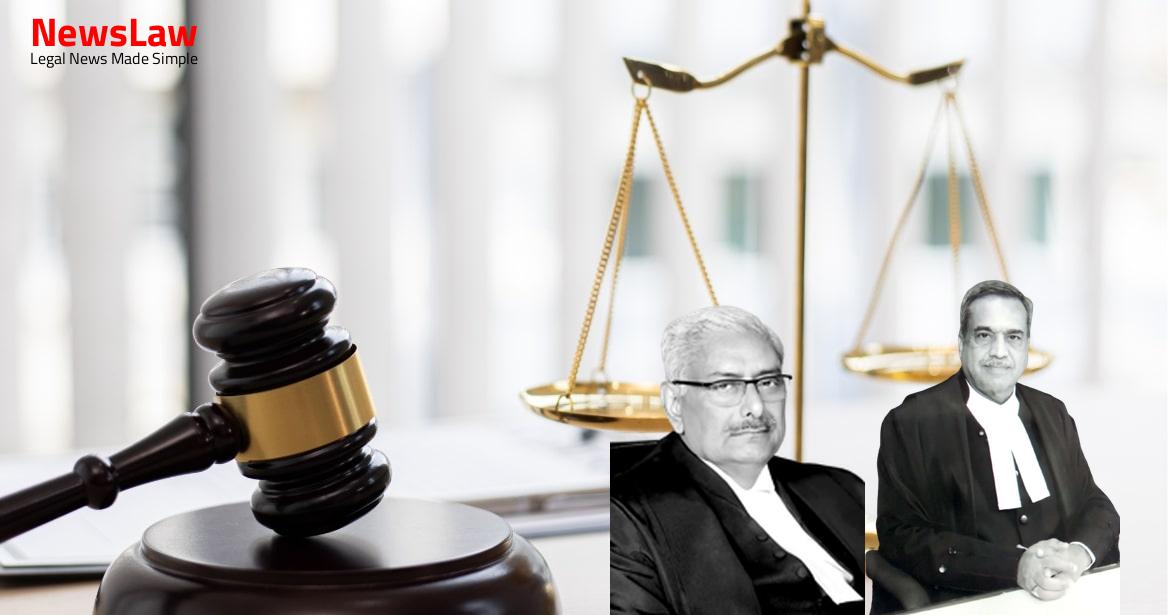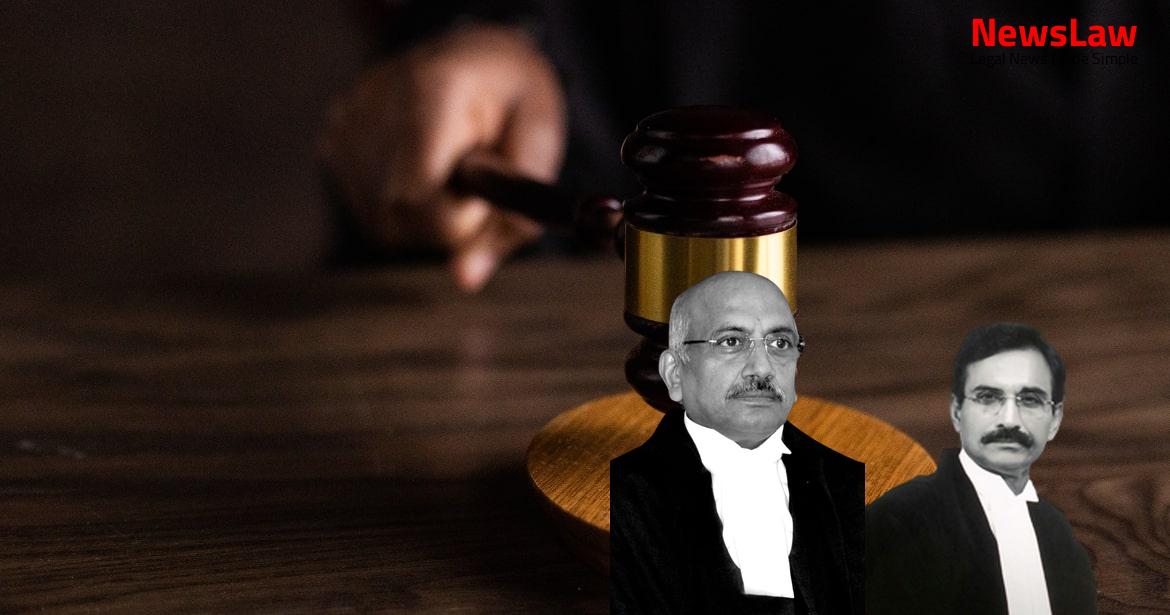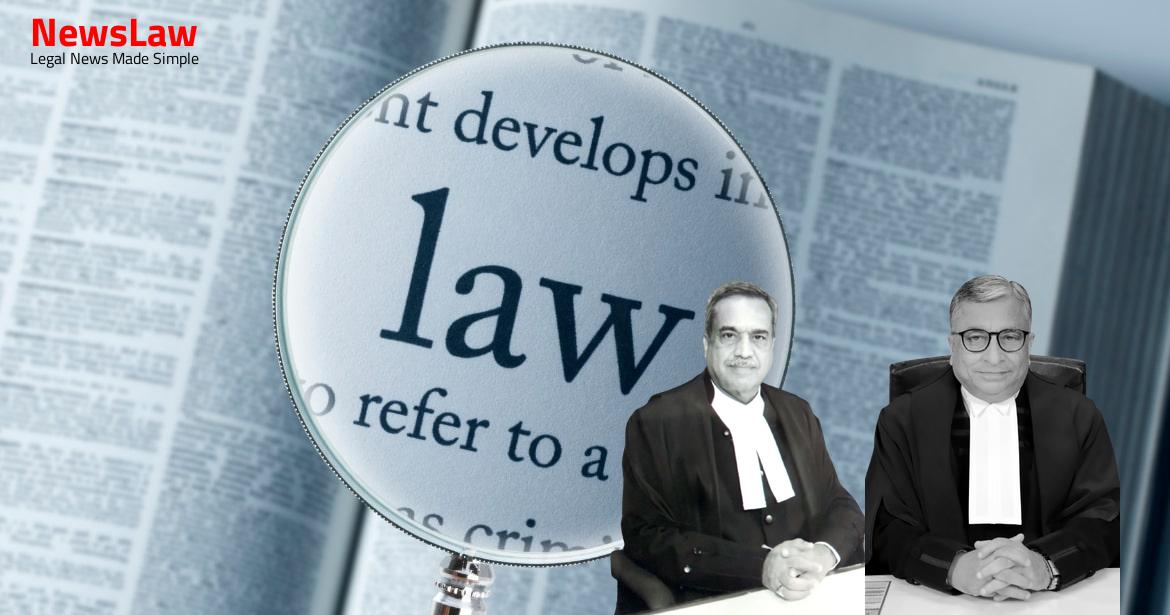In a significant legal battle for justice, the Supreme Court of India has ruled in favor of upholding the rights of a serviceman who dedicated years to the Army. The case, involving the discharge of the appellant before completing pensionable service, highlights the importance of considering all relevant factors in such decisions. The Court’s decision recognizes the appellant’s long service and sets a precedent for fair treatment in the armed forces.
Facts
- The appellant suffered four red ink entries between 7.6.1993 and 3.5.1994.
- The appellant was discharged 1 year 5 months and 24 days before completing pensionable service.
- The appellant challenged the discharge order before the Armed Forces Tribunal.
- Each red ink entry led to a separate punishment.
- Leave to appeal was granted for the present appeals.
- The Tribunal and review application both dismissed the appellant’s claims.
- The appellant was discharged from the Army under Rule 13(3)(III)(v) solely based on the four red ink entries.
- The appellant, who was enrolled in the Indian Army as a Driver in 1980, was promoted to ALD and eventually granted the rank of Lance Dafedar.
- The Armed Forces Tribunal Bench at Jaipur, Rajasthan dismissed the application of the appellant and confirmed the order discharging the appellant from service under Rule 13(3)(III)(v) of the Army Rules, 1954.
- The appellant is aggrieved and dissatisfied with the judgment and order of the Tribunal and has filed the present appeals challenging the dismissal from service.
Also Read: Address Update Requirement: Legal Implications for Corporate Entities
Arguments
- Appellant was discharged from service solely based on four red ink entries after 13 years of service.
- Allegations/charges for red ink entries were reviewed.
- The discharge was considered a case of victimization due to the short span of red ink entries within one year.
- The appellant did not comply with certain illegal directions which led to the punishment.
- Referring to the case of Veerendra Kumar Dubey v. Chief of Army Staff and Others 2016 (2) SCC 627, the nature of the offense, and long service rendered by the individual should have been considered by the Commanding Officer before discharge.
- The Tribunal should have set aside the discharge order according to the appellant’s defense.
- The respondents strongly oppose the appeal, stating that the discharge was justified under Rule 13(3)(III)(v) of the Army Rules.
- Appellant was discharged from service to maintain discipline in the Army.
- Tribunal rightly refused to interfere with the order of discharge.
- Discharge was in accordance with Rule 13(3)(III)(v) of the Army Rules.
Also Read: Supreme Court Judgement on Maharashtra Prevention of Dangerous Activities Act, 1981
Analysis
- Award of four red ink entries does not automatically render the individual undesirable for retention in the force.
- Having served for 13 years and approaching pensionable service, discharge based solely on red ink entries seems unjust.
- The authority responsible for discharge must consider all relevant factors, not just the red ink entries.
- The appellant was discharged under Rule 13(3)(III)(v) of the Army Rules before completing pensionable service.
- Despite the red ink entries, the Commanding Officer should have considered the nature of the offences and other aspects before discharge.
- Qualifying for discharge does not mandate actual discharge; other factors must be weighed in as well.
- Red ink entries awarded to the appellant were not for gross misconduct
- Long service rendered by the appellant was not taken into consideration by the authority
- Nature of the misconduct leading to red ink entries was not severe enough to warrant discharge
- Offences for which red ink entries were awarded did not justify the discharge of the appellant
- The order of discharge was deemed wholly unjustified and unsustainable in law
Also Read: Supreme Court Ruling on MBBS Admission Eligibility Criteria
Decision
- Order of discharge set aside for the appellant.
- Appellant entitled to all consequential benefits as if benefit of continuous service for all other purposes, including pension.
- Commanding Officer failed to consider relevant aspects before passing the discharge order.
- Discharge order was passed mechanically based on four red ink entries.
- Appeals succeed and are allowed with no costs.
- Monetary benefits for the appellant to be released within four months.
Case Title: NARAIN SINGH Vs. UNION OF INDIA .
Case Number: C.A. No.-007452-007453 / 2019



